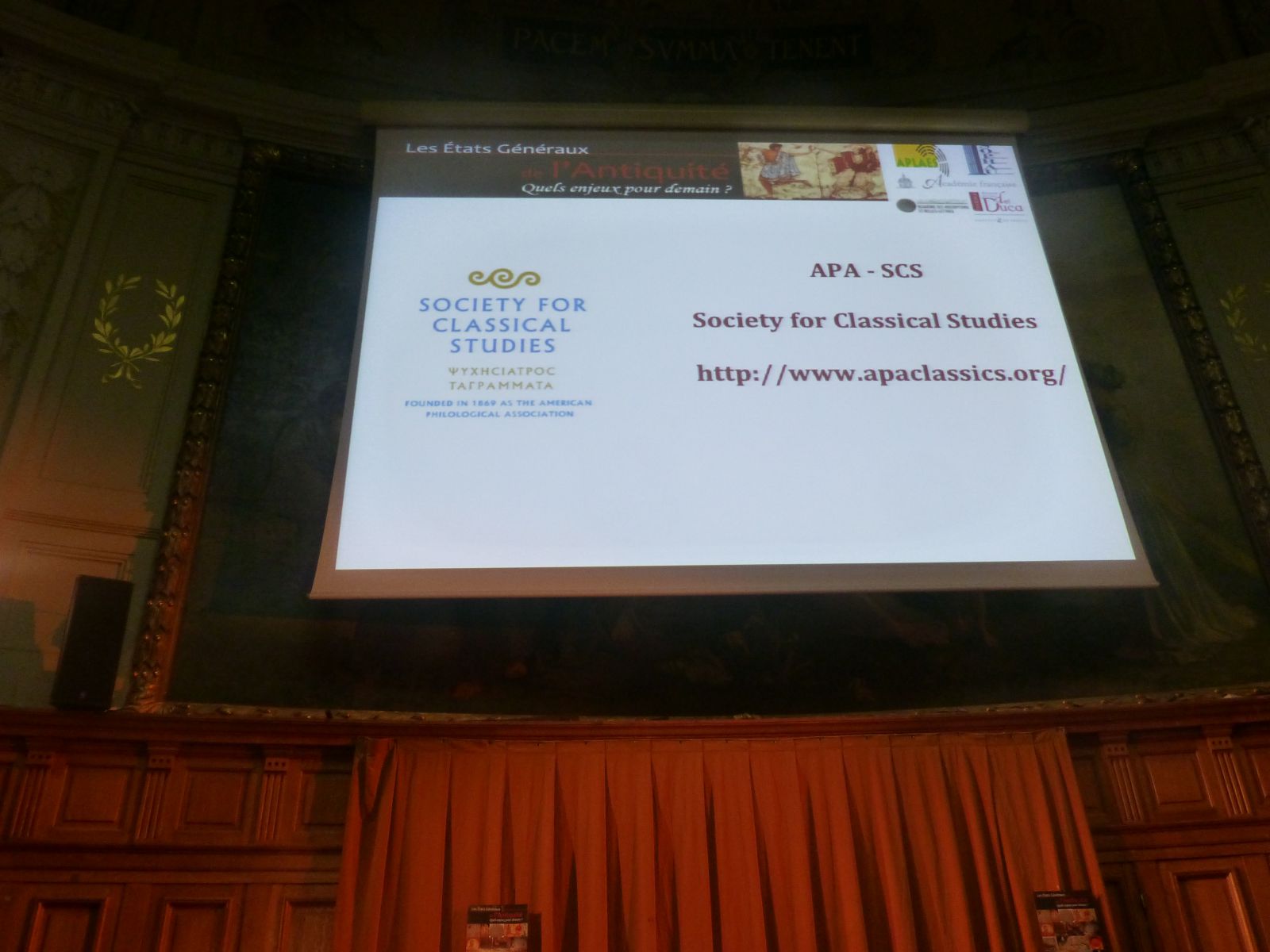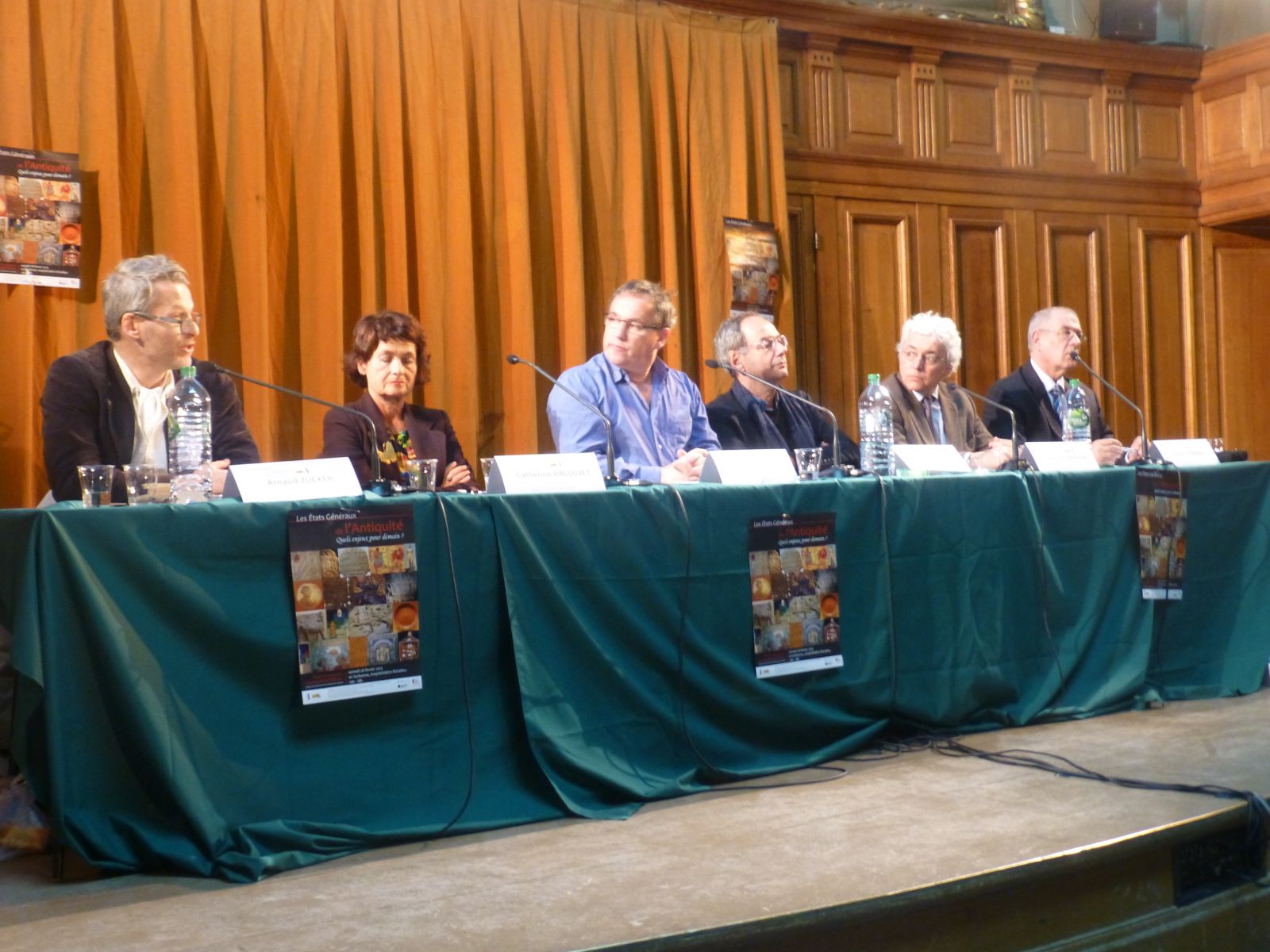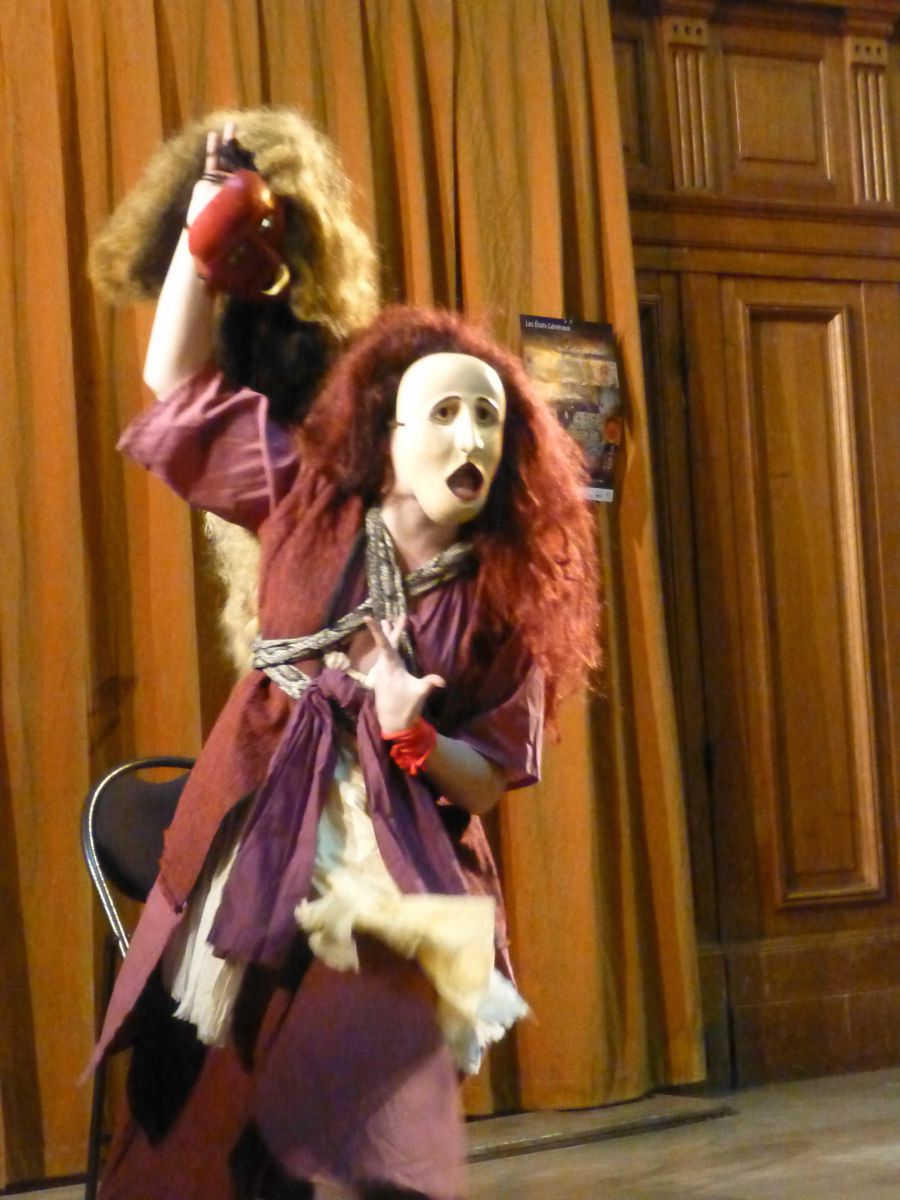The États Généraux of 1789, brought together the three "estates," the nobility, the clergy, and oi polloi, at a moment of political crisis. The meeting held in Paris on Feb. 28th was organized by l'APLAES (Association des Professeurs de Langues Anciennes de l'Enseignement Supérieur) and SOPHAU (Société des Professeurs d'Histoire Ancienne de l'Université), and the University of Franche-Conté at what has been perceived as a moment of crisis in our discipline. They were joined by a great many, mainly European, organizations involved with the study of Classics and Ancient History. The SCS felt it was crucial for us to be part of this initiative despite – or because – of the differences in our educational systems. Yet all of us, in our different ways, recognize that we are at a critical juncture in our disciplines. We can both learn and usefully contribute to an international dialogue concerning the future of our field with colleagues in Europe and elsewhere.
The conference consisted of three sessions, perhaps not quite equivalent to the three estates: first on teaching, where the emphasis was quite heavily on secondary school teaching; second, on "culture," which was a bit vague, but basically about our cultural debt to Greece and Rome and outreach; and third, on research. These were followed by an eloquent apology for classical studies by the prize-winning novelist, Christophe Ono-dit-Biot, and a musical and dramatic presentation by the company "Demodocos".
While the first session focused almost exclusively on the teaching of languages in the secondary schools, with a few suggestions for integrating historical materials into the study of texts, the last focused, again almost exclusively, on archaeological or epigraphical research, with surprisingly little about possibilities for philological research or much about digital humanities. The reductions in funding at all levels were, as one might expect, a constant theme. There were lively discussions after each session, including remarks from Greeks, Poles, and Senegalese. Further follow-up questions and comments can be accessed on the web pages devoted to the three areas:http://sophau.univ-fcomte.fr/les-etats-generaux-de-l-antiquite/. Afterwards, several participants commented that in several areas we do a better job in the United States.
Many of the issues raised – the decline in enrollments, the pressure on Classics arising from a more pragmatic view of the role of education, the importance of engaging the general public, and the decline in funding for education at all levels – are familiar to us. Others are peculiar to the highly centralized French system. Nevertheless, I think that it was important for the SCS to participate; European higher education is rapidly changing, and in some ways becoming more like ours. Beyond Europe, we need to be aware of what is going on in China, Japan, Africa, and other countries, where there is a huge interest in the Classics. We are all in this together and can fruitfully learn from each other.
Jenny Strauss Clay



